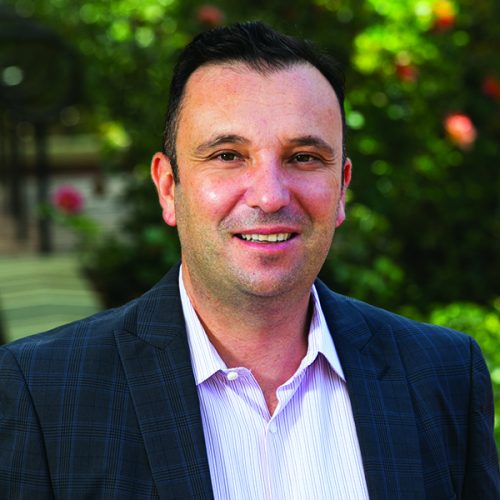News | PSR Researchers Provide Final Thoughts on Completed Projects
Stop the VideoNews

PSR METRANS UTC
PSR Researchers Provide Final Thoughts on Completed Projects
Wednesday, June 19, 2019
In these past two years of Pacific Southwest Region 9 University Transportation Center (PSR-UTC) research, faculty members and students have ongoing or completed projects in line with the Center’s four multidisciplinary research themes: technology for improved mobility; improving mobility for disadvantaged populations; improving resilience and protecting the environment; and managing mobility in high growth cities and regions.
This issue features three completed projects from PIs: Konstadinos Goulias, Professor of Transportation, University of California, Santa Barbara (UCSB); Antonio Bento, Professor of Economics, University of Southern California (USC); and Fraser Shilling, Research Scientist and Co-Director of the Road Ecology Center, University of California, Davis (UC Davis).
Antonio Bento |
Konstadinos Goulias |
Fraser Shilling |
Goulias’ project, “Vertical Equity Statewide Pilot, Data Inventory, and Guidelines for Performance Based Planning,” set out to develop a method for vertical equity analysis, which would allow planners to see how disadvantageous groups of different incomes and other sociodemographic characteristics experience the land use-transportation system.
“In this project, we experiment with a method that creates three different types of spatial anchors/commercial centers based on business establishment types,” said Goulias. “We can use the findings to develop new travel demand forecasting methods and study how people schedule their daily activities.”
Bento’s project, “The Cost-Effectiveness of Alternative Policies for Reducing GHG Emissions in the Freight Sector,” conducts a multi-market analysis of the effect of adopting cleaner technologies like ZEV's in the freight sector. The model developed simulates adjustments, such as financial costs and charging/re-charging time costs, that freight sector players undergo in response to GHG emission reduction policies.
“The key factor that we noted in the simulations is the importance of recharging time, the magnitude of which can turn around the results completely,” said Bento. “Higher recharging time can result in a huge reduction in emissions but also higher prices of commodities, which harms the final consumer. With lower recharging time, emissions reduction is lower, but the prices of goods also decrease leading to better consumer satisfaction and more economic activity.”
Shilling’s project, “Automated Analysis of Wildlife-Vehicle Conflict Hotspots Using Carcass and Collision Data,” focuses on collisions with animals for safety, cost, and environmental reasons. This project’s goal was to assist state DOTs in this mission by creating a web tool that automatically analyzes spatial datasets and provides various outputs showing locations of high rates of wildlife-vehicle conflict.
“The experimental part of this project was that state DOTs would readily take advantage of a tool like this,” said Shilling. “We found that they were eager to participate in its creation and also eager to use it. Within the first 2 months after completion, 40 state agency staff from 13 states had used the tool.”
To read more about PSR research projects, go to: https://metrans.org/research-projects/psr-utc-research
News Archive
- December (1)
- November (6)
- October (4)
- September (2)
- August (3)
- July (4)
- June (3)
- May (7)
- April (8)
- March (11)
- February (8)
- January (7)
- December (7)
- November (8)
- October (11)
- September (11)
- August (4)
- July (10)
- June (9)
- May (2)
- April (12)
- March (8)
- February (7)
- January (11)
- December (11)
- November (5)
- October (16)
- September (7)
- August (5)
- July (13)
- June (5)
- May (5)
- April (7)
- March (5)
- February (3)
- January (4)
- December (4)
- November (5)
- October (5)
- September (4)
- August (4)
- July (6)
- June (8)
- May (4)
- April (6)
- March (6)
- February (7)
- January (7)
- December (8)
- November (8)
- October (8)
- September (15)
- August (5)
- July (6)
- June (7)
- May (5)
- April (8)
- March (7)
- February (10)
- January (12)


















